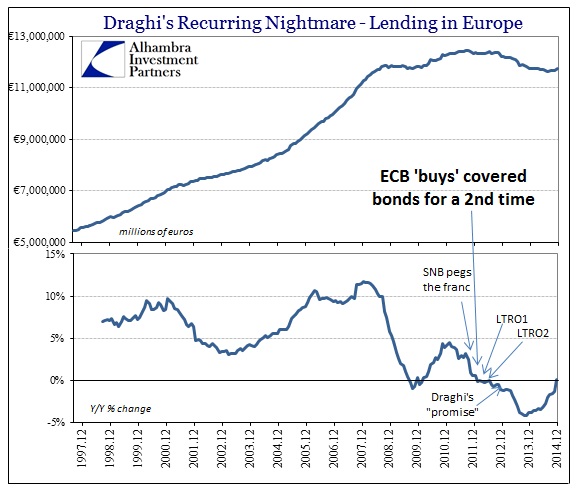by
Michael Noonan
Mention is often made that one should wait for confirmation of a particular move in
futures before making a commitment, either way. Last week, it appeared evidence was
mounting that November could be a possible low for the correction since late 2011.
Then, we run across this graph from
goldchartsrus.com which shows an inordinate
build-up of short positions in silver by what we would call “smart money,” “insiders.”
These large traders do not make such overtly strong commitments to the short side
without expectations that things will go their way. If anything can be said about the
market manipulators, mostly the elite’s central bankers/Wall Street/Fed, it does not
really matter as to accurate identity, for they hide their source[s] very well. What matters
is the outcome from the effort, and to date, there has been a lot of “smashing” success in
taking both silver and gold lower, at will, and with no opposition.
We will rely on the proverbial picture being worth 1,000 words and not add anything
further to the ominous implications that this chart portends, and it is why the probability
for a lower low has to be respected as a highly possible event. The breed of faction behind
these kind of moves make them for good reason and with near “slam dunk” assurances.
image: http://edgetraderplus.com/wp-content/uploads/2015/01/Silver-Shorts.bmp

Crude oil’s express elevator decline is an example of what can happen when those in
control decide to move a market. These days, almost every market is undergoing some
degree of manipulation to the extent that “free markets” are nonexistent. It should come
as no surprise that the troika US/CIA/Fed is directly behind most events whose outcomes
are typically destructive. If not directly involved, then the named trio, acting individually
or in concert, are indirectly involved as in the case of crude oil. An argument can be made
that the Saudi’s are purposefully punishing all opposition to their market by taking the
price of crude to levels that cannot be economically sustained by other world producers.
In particular, the US shale industry is being targeted as payback against the US for all the
past draconian measures taken against the Saudis, and the Saudis may well be taking
direction from China, or at least acting in concert with China as the “takedown” of the US
and its petrodollar are being driven into oblivion. Things are getting nasty, in the process,
and the US/Fed are acting more and more like cornered rats.
The elites have become terrified that everything they have been doing and working
toward, as in their New World Order, is at risk, something unthinkable until they started
messing with Putin and Russia. Putin has been a game-changer against the
moneychangers, and things have really gone south for the elites ever since Obama has |
been directed to impose unimposing sanctions on Russia. It has been Europe that is
suffering the most as a result of lost business and greater economic hardships imposed by
unelected, non-representative, US-led sycophant bureaucrats from the EU in Brussels.
It will be one of the world’s greatest ironies if Alexis Tsipras, Greece’s newly elected Prime
Minister from the upstart Syriza Party, becomes a huge factor in upsetting the EU’s money
apple cart and helping bring down the European Union, failed organization that it has
been. PM Tsipras is telling Germany, and the rest of the EU, that Greece does not want
their stinking loans anymore. The previous loans have destroyed Greece, its economy,
and ruined the lives of so many Greek citizens suffering under German/EU austerity.
Greece is a microcosm of all that is wrong with the unelected organizations, IMF, BIS,
EU, lending money created out of thin air, overburdening sovereign countries to the
point where each country can no longer survive under such onerous imposed debt
burdens. As other nations watch how Greece is giving the financial finger to Germany
and the EU, as politely and as pointedly as possible, there could be a domino effect that
would be disastrous and cause the breakup of the EU, which will happen anyway.
None of these events are directly correlated to the price of gold and silver, and these are
just a few of a myriad of events occurring around the world that are keeping a lid on the
PMs prices, for now. While all of the fundamental considerations are very valid, they
are not what is driving gold and silver. Ukraine, as an Obama false flag, sanctions against
Russia, the collapse of crude oil, the growing solidarity of the BRICS cartel, and now
Greece are all factors driving the destructive ways of the US/CIA/Fed as they fight for
survival. It will get uglier, and the first chart above may be a harbinger of what is yet
waiting in the wings.
The Concentration Of Traders Chart may influence silver over the next several months.
The timing of unfolding events is impossible with so many developing surprises, like
Greece. The reading of the charts is irrespective of specific news and/or events, but the
current prices do reflect all that is going on. We mention “anything can happen,” [crude
oil as a most recent example] a few times here because the charts do not show a likely or
immediate change in trend, so one has to go with “what is” as the charts currently show.
With a new recent low just two weeks ago, there is no way silver can be viewed as
being in anything other than a down trend with the possibility of still lower prices to
come. Even with lower prices as a possibility, silver [and gold] is artificially being
suppressed. When you reflect on the increasingly faster pace of events unfolding,
almost all negatively, owning silver and continuing to buy more and more is one of
the best ways to protect oneself from the financial failure that is certain to come.
Price should not matter, any more. You either have silver and gold or you do not.
If you do not, you are at grave financial risk when the US collapses economically,
and it will as the Fed’s fiat [worthless] “dollar” is increasingly under attack.
We have refrained from putting a time frame on when silver and gold will finally
break free from the manipulative forces, but 2015 could be a defining year. It
remains to be seen, but events are unfolding at such an increased level and so
unpredictably that this could be the year. We did not say this in 2013 nor in 2014,
and it may take going into 2016, but be prepared, or you will not be spared.
image: http://edgetraderplus.com/wp-content/uploads/2015/01/SI-M-31-Jan-14-880x612.gif

Silver’s direction has a greater degree of clarity than gold, at least in the charts. The
narrower range at resistance, 2 weeks ago, said sellers were protecting that price level
and preventing buyers from extending the range higher. Last week’s decline had greater
ease of downward movement, noted by the larger bar. This keeps silver on the defensive,
and caution is warranted.
image: http://edgetraderplus.com/wp-content/uploads/2015/01/SI-W-31-Jan-14-880x612.gif

The chart comments cover what else needs to be said.
image: http://edgetraderplus.com/wp-content/uploads/2015/01/SI-D-31-Jan-15-880x612.gif

The volume and price activity, since November 2014, has a more positive bias, but the
trend has not turned up, and caution is advised. This does not imply to exercise caution
in continuing to buy physical gold, and silver, as much as one reasonably can. Price will
not stay down here for much longer, nor may there be the degree of availability, either.
Best not to be penny wise and pound foolish.
image: http://edgetraderplus.com/wp-content/uploads/2015/01/GC-M-31-Jan-15-880x612.gif

As the chart comments imply, gold is not an easy read, nor should it be, given how it is in
the middle of a TR [Trading Range], where the level of knowledge is at its lowest when it
comes to making an informed decision. With a greater level of ambiguity in gold, the
somewhat more certainty of the silver charts may be a swaying factor, here.
image: http://edgetraderplus.com/wp-content/uploads/2015/01/GC-W-31-Jan-15-880x612.gif

The message is mixed on the daily. An area of apparent resistance held to push price
lower, last week, yet the activity is holding half-way retracement areas which is to be
expected in an up trending market, and less so in the current gold market.
A clearer analysis NMT. [Needs More Time].
Keep buying the physical, and do not fret over what you paid on previous purchases.
Physical gold and silver are being bought for a specific purpose, and price is not the
objective…security is. Remember: “if you do not hold it, you do not own it” has proven
to be true in too many cases. For sure, do not keep any gold or silver in a bank under
any circumstances, including and especially retirement accounts.
image: http://edgetraderplus.com/wp-content/uploads/2015/01/GC-D-31-Jan-15-880x612.gif













 OK, so your heart isn’t bleeding for this shirtless fool (actually, me).
OK, so your heart isn’t bleeding for this shirtless fool (actually, me).





